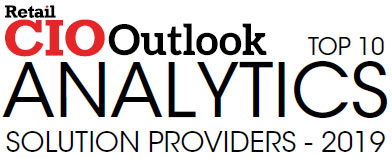Retail analytics will play an increasingly important role in integrating with the enhancing adoption of data-intense digital technology by retailers, comprising AI, IoT, and 5G.
FREMONT, CA: Analytics means nothing but the collection and analysis of data to inform the strategic and operational decision-making. The capability drives digital transformation in retail, thereby, making the operations more efficient, from supply chain and store operations to the customer service and engagement. While considering retail analytics, information on operations, supply chains, a consumer and shopper behavior comprises the raw material for analytics.
Retail analytics can be categorized into three types: real-time analytics, predictive analytics, and behavioral analytics. Their applications are different from one another. For instance, behavioral analytics could be used in a predictive manner to anticipate future shoppers' behavior.
 Therefore, one can say that the critical element of the retailer's digital transformation constitutes a fundamental building block of AI. Technology is radically changing the way retailers operate and interact with shoppers. AI takes retail analytics beyond market conditions and consumer behavior to enable computers to formulate autonomous decision-making based on insight from data.
Therefore, one can say that the critical element of the retailer's digital transformation constitutes a fundamental building block of AI. Technology is radically changing the way retailers operate and interact with shoppers. AI takes retail analytics beyond market conditions and consumer behavior to enable computers to formulate autonomous decision-making based on insight from data.
Let's see what the future looks like in analytics and retail landscape and what technologies will drive to boost the analytics platform.
IoT
The adoption of IoT systems in retail need sophisticated retail analytics capabilities to be as effective as possible. The connected devices that include IoT systems can collect and share data about the working status with other parts of the network. In the retail sector, critical applications for this connectivity level surround inventory management, logistics, supply chains, as well as the in-store operations. The data flow is monitored and examined by analytics platforms that then express actions for the devices to execute.
5G
Robust data analytics capabilities will be needed to process a vast amount of data that 5G facilitates. Especially in the brick-and-mortar stores, 5G proposes faster data transmission rates and the possibility of processing more information. It will enable greater adoption of data-rich technology that will detect, react, and communicate with customers based on the behavior when browsing the store. It will result in more intense in-store shopper engagement and greater customization of the shopping experience.
AI
Efficient data analytics platforms are needed to support greater adoption of AI and machine learning in the retail sector. Data analytics feeds AI and machine learning capabilities. It enables the advanced technologies to attain the insight needed to develop and automate the decision-making based on a testing and learning criteria that is conducted autonomously by computers.
See Also: Top Artificial Intelligence Solution Companies
Read Also